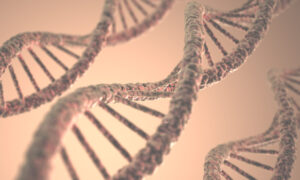Studies examining the connection between dietary patterns and fertility outcomes provide valuable insight, however they may not be practically applicable for fertility patients with eating habits that are significantly different from the widely encouraged Mediterranean diet. Identifying the benefits of specific foods offers more actionable dietary strategies that fertility professionals can share with their patients. A new study, “Nut Consumption and Fertility: a Systematic Review and Meta-Analysis” published in Advances in Nutrition aims to address this by looking into the potential of nut consumption to enhance male fertility.
Research on nut intake and fertility
The study conducted by Barbara R. Cardoso, Izabella Fratezzi, and Nicole J. Kellow aimed to evaluate the association between nut intake and fertility outcomes in both men and women. A systematic review and meta-analysis of relevant studies was conducted, encompassing a wide range of interventional and observational studies involving human subjects of reproductive age. Four studies involving 646 male and 229 female participants were included.
The results of the study are encouraging for men working towards improved fertility. Meta analysis of two randomized controlled trials involving 223 healthy males revealed that consuming at least 60 grams of nuts per day increased sperm motility, vitality, and morphology, key indicators of male fertility. Notably, nut consumption did not impact sperm concentration.
Why nuts?
Nuts are nutritional powerhouses, packed with beneficial compounds that may contribute their positive effects on male fertility. As Cardoso et, al. note, “nuts can be a strong ally for fertility management given their nutritional profile, characterized by a high ratio of omega-3: omega 6 fatty acids, low concentration of saturated fats, and large concentration of proteins, fibers, vitamins, minerals, and bioactive compounds with potential redox action”.
The alpha-linolenic acid and monounsaturated fatty acids in nuts positively regulate the fatty acid concentrations in the sperm membrane and increase antioxidant capacity by enhancing the anti-inflammatory pathway. Selenium, zinc, vitamin E and polyphenols also enhance antioxidant capacity, reducing the chances of sperm DNA fragmentation due to oxidative stress in seminal fluid.
Due to their nutritional profile, nuts can potentially promote successful reproductive outcomes, leading the researchers to conclude that adding at least two servings of nuts daily in healthy men improves sperm parameters, even in those that follow a Western-style diet. This diet is characterized by a high presence of ultra-processed foods with high concentrations of saturated fatty acids, salt and refined and simple carbohydrates, together with low intake of fresh produce.
Conclusion
The findings of this study are helpful for fertility nutritionists and clinics, particularly when dealing with patients whose diet is different from what is generally recommended for fertility. Nuts are an easy add-on, provided there are no allergies. By educating couples seeking advice and/or treatment about the potential benefits of nut consumption, fertility specialists can empower men to make informed lifestyle choices that promote optimal reproductive health.
Be at the forefront of fertility advancement and improve clinic success rates by staying up to date with the latest research and technology. Cutting-edge tools like the SQA-Vision Sperm Quality Analyzer provide objective, standardized results, reducing human error and improving outcomes for your patients. Learn more here.




